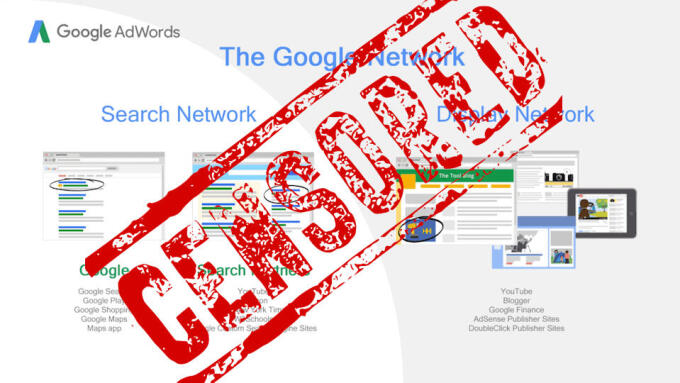MOUNTAIN VIEW, Calif. — Google disabled its Programmable Search Engine (ProSE) product on several adult sites on Tuesday, after ad industry trade publications sensationalized a report claiming that ads for major mainstream brands were appearing alongside pornographic and other controversial content.
Google VP of Global Ads Dan Taylor described ProSE as a free search tool the company offers to small websites “so that they can present a search experience directly on their sites.” He noted that ProSE represents only “a minuscule part” of Google’s powerful Search Partner Network.
“Ads may appear based on the user’s specific search query,” Taylor said. “They are not targeted to, or based on, the website they appear on. Websites that merely implement ProSE do not get any ad revenue from those ads.”
The scandal began when research company Adalytics, which bills itself as helping brands “secure control over their media investments,” posted a report titled “Does a lack of transparency create brand safety concerns for search advertisers?”
The report was then picked up by major advertising industry publications Adweek and Ad Age, which headlined and editorially adjectivized their pieces in a sensational manner aimed at lumping the adult industry with illegal and dangerous content.
Adweek headlined its article, “Google Search Ads End Up on Pornographic and Sanctioned Sites.” Similarly, Ad Age went with “Google Served Brand Search Ads Through Porn Sites and Other Problematic Partners, Adalytics Finds.”
Adweek: Adult Sites Are 'Undesirable,' 'Unsavory'
Adweek’s Catherine Perloff led her piece with “When Apple, Goldman Sachs and other large brands bought Google search ads over the last year, these ads not only appeared across search queries like ‘best credit cards,’ but also on more unsavory sites.”
Perloff labeled adult sites as “undesirable environments for advertisers” and lumped adult sites together with sites featuring pirated content, as well as sites “for Iranian and Russian corporations sanctioned by the U.S. government.”
Perloff also asserted that these findings “are spurring marketers to reassess their Google Search and Performance Max (Pmax) spend.”
According to official Google policy, the company does not allow into its ads ecosystem content that includes “graphic sexual text, image, audio, video, or games (e.g., sex acts such as genital, anal, and/or oral sex; masturbation; cartoon porn or hentai; graphic nudity); or contains non-consensual sexual themes, whether simulated or real.”
According to Adweek, the Adalytics report “found more than 36,000 websites in the Google Search Partner Network eligible for advertising, 390 of which are pornographic and four of which are websites belonging to entities sanctioned by the U.S. government. Adalytics also found more than 2,200 domains in the Search Partner Network that seemed to violate copyright laws. The report found Adweek ads on an Italian porn site.”
Google responded to Adweek’s query by calling Adalytics’ claims “wildly exaggerated.” However, after Adweek disclosed to Google specific examples of ads that violated its terms of service, the company disabled ProSE on a number of adult websites.
A 'Cesspool' of Reputational Risk
Ad Age’s Jack Neff led his article by explaining that "thousands of advertisers including such titans as Procter & Gamble Co., big banks and U.S. law enforcement and military recruitment advertisers" may have unknowingly had ads placed on porn sites and/or the websites of companies subject to U.S. sanctions.
Neff wrote that Adalytics’ report was prompted by a client who was “searching for why brand ads were appearing on Breitbart, another Google Search Partner, even though the controversial right-wing website was on the company’s exclusion lists.”
While the initial aim and the focus of the report was not specific to the adult industry — for instance, some of the ads AdWeek mentions were placed not on adult sites but on sites belonging to sanctioned Iranian and Russian companies — both trade publications decided to lead the story with the porn angle.
“By Monday evening, within 12 hours of when Google was contacted for comment by journalists,” Neff reported, “porn sites that had been serving Google ads and were brought to Google’s attention either had their Google search widgets removed or rendered inoperative.”
Neff also quoted marketers referring to the situation as “a cesspool” and lumping “sites that are non-brand-safe” with sites sanctioned by the Office of Foreign Asset Control.
“There’s reputational risk in being on porn sites,” one of the marketers commented. “We all know that.”




